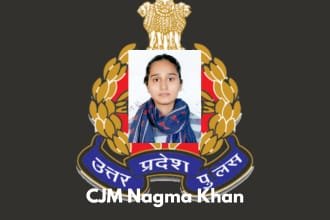In a significant judgment reaffirming the jurisprudence on circumstantial evidence and motive in criminal cases, the Allahabad High Court has upheld the conviction of seven individuals—including a father who killed his own daughter and her lover in what the Court categorically termed a case of “honour killing.”
The division bench comprising Justices Siddharth and Praveen Kumar Giri dismissed the appeals of the accused-appellants against their conviction under Sections 147, 302/149 of the Indian Penal Code, holding that there existed “sufficient motive” for the brutal double murder, despite several prosecution witnesses turning hostile during the trial.
The Incident: A Tale of Love, Disapproval, and Violence
The tragedy unfolded on February 5, 2006, when Soni, daughter of the prime accused Ibrahim, was discovered dead along with Sharafat, the informant’s brother. Allegedly, the duo had been in a romantic relationship, which was strongly disapproved of by Soni’s family.
According to the FIR lodged by Raees Ahmad, Sharafat was murdered by Ibrahim, his six sons—Kayoom, Farukh, Sannuar, Shaukeen, Mussarat, and Ayub—and two others. The motive was rooted in the perceived dishonor brought upon the family by the relationship.
Legal Developments and Trial Court Proceedings
Initially, charges were framed under Sections 147, 149, and 302 IPC. However, during the course of the trial, an additional charge under Section 504 IPC (intentional insult with intent to provoke breach of the peace) was introduced. This amendment came after the examination-in-chief and cross-examination of key prosecution witnesses PW-1 (Raees Ahmad) and PW-2 (Anwar) had already been completed.
Surprisingly, the trial court allowed a de novo trial, permitting witnesses to re-testify in light of the newly added charge. This procedural irregularity opened the door for the prosecution witnesses to change their earlier statements, resulting in several of them turning hostile and absolving the accused by blaming “unknown miscreants” for the murders.
Hostile Witnesses and Twisted Testimonies
Among those who turned hostile were the informant Raees Ahmad (PW-1), Anwar (PW-2), and others like Jiju (PW-6), Liaqat Ali (PW-7), and Yamin (PW-8). These witnesses deviated from their earlier depositions and attributed the double murder to 13-14 unidentified miscreants.
Despite this reversal, the Trial Court convicted all the accused, leading them to challenge the judgment before the Allahabad High Court.
High Court’s Ruling: Motive and Circumstantial Evidence Prevail
Dismissing the appeals, the Allahabad High Court underscored that even though witnesses turned hostile, the chain of circumstantial evidence remained unbroken. The Court emphasized the principle that:
“A man can tell a lie but circumstances cannot.”
The bench observed that the accused had a clear motive—their anger and perceived dishonor due to the romantic relationship between their daughter/sister and the deceased Sharafat. The absence of a credible alternative explanation from the hostile witnesses, combined with the circumstances of the incident, pointed to the guilt of the appellants.
Importantly, the Court found fault with the trial court’s decision to allow a de novo trial merely due to an amended charge after the completion of evidence. It held:
“Once the examination-in-chief as well as cross examination of the witnesses are already recorded and their evidence is complete, the Trial Court should restrain itself from permitting the de novo trial.”
Instead, witnesses should only be permitted to depose on the amended charges and not discard their previous depositions entirely.
Circumstantial Evidence and Honor Killing: Legal Insights
This ruling reiterates several critical principles of criminal law and procedure:
- Motive is a key link in the chain of circumstantial evidence, especially in cases involving honor killings where direct eyewitnesses may be reluctant to testify.
- Hostile witnesses do not automatically discredit the prosecution’s case if other materials and evidence support the guilt of the accused.
- De novo trials should not be permitted casually once the evidence is on record, particularly to prevent manipulation of the trial process through witness coercion or intimidation.
Custody Orders and Sentencing
While affirming the conviction, the Court directed that Ibrahim, Kayoom, and Farukh, who were on bail, be taken into custody immediately to serve their sentences. The remaining four—Sannuar, Shaukeen, Mussarat, and Ayub—were already lodged in prison, and thus no further direction was required.
Conclusion: A Landmark Case in Honor Killing Jurisprudence
The Allahabad High Court’s judgment in Ibrahim vs. State of U.P is a significant addition to Indian criminal law jurisprudence, particularly in honor killing cases, which often suffer due to social pressure, lack of direct evidence, and witness hostility.
The Court’s reliance on motive as a decisive factor, coupled with its sharp analysis of trial court procedure, reinforces the importance of judicial scrutiny and adherence to evidentiary principles even in challenging cases.
This judgment sends a strong message: Personal beliefs or family honor cannot justify acts of murder. The rule of law must prevail over regressive social norms.


